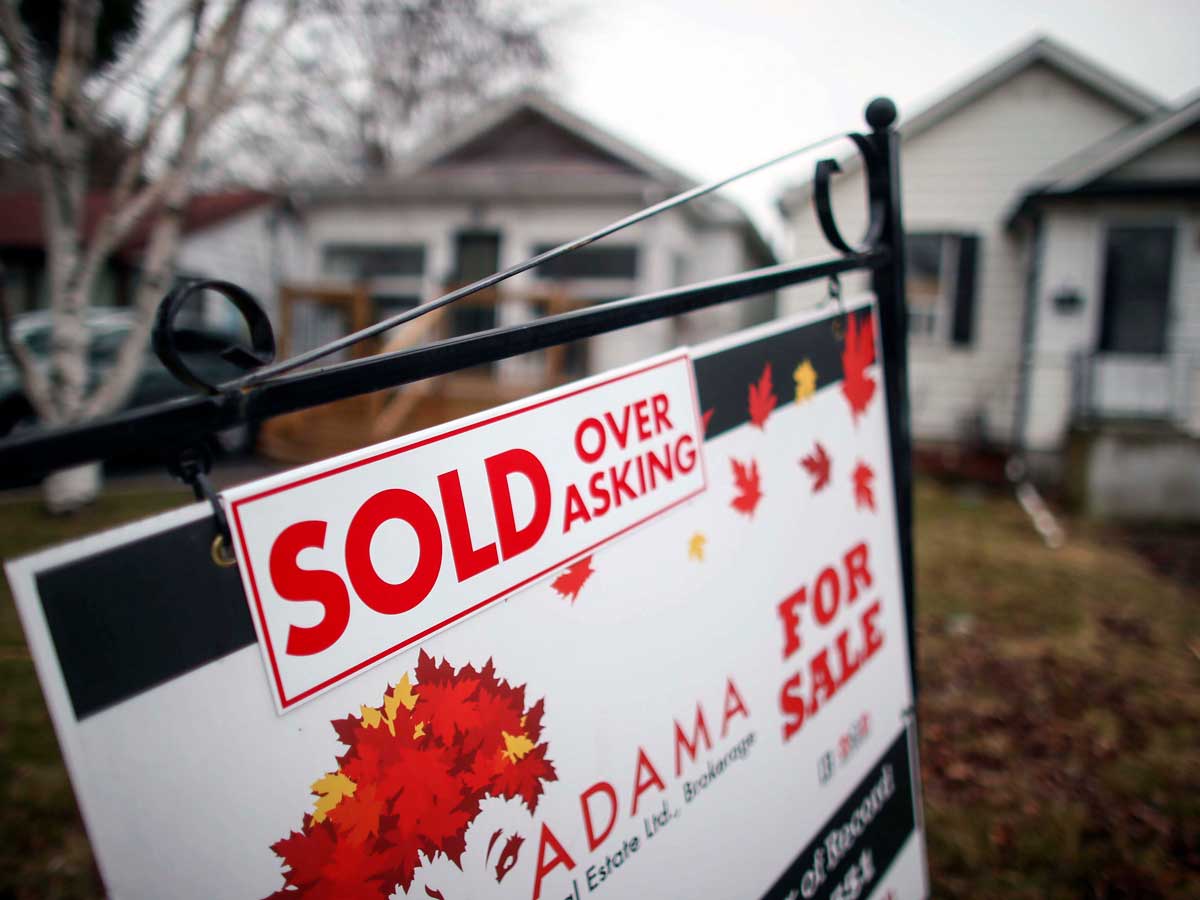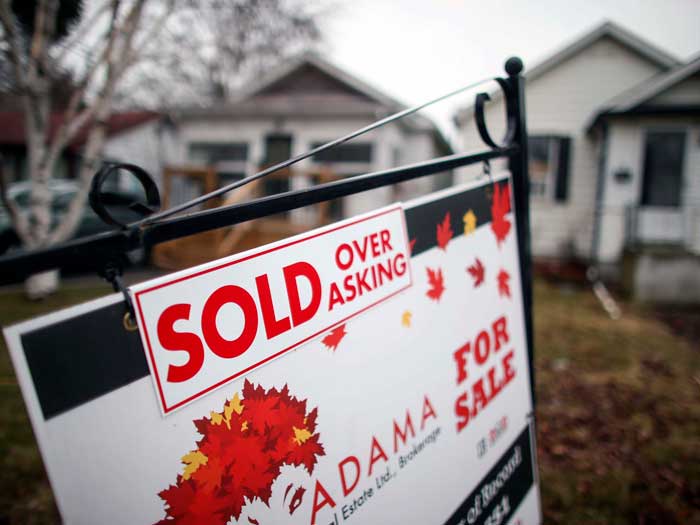
Are Canadians buying too many homes?
 Sold for over asking is becoming a common occurrence as demand outstrips supply in Canada’s housing market (Getty Images)
Sold for over asking is becoming a common occurrence as demand outstrips supply in Canada’s housing market (Getty Images)
Housing market growth has peaked since the beginning of the pandemic; for several months in 2021, prices were up by more than 20 per cent over the previous year. Nationally, the market has not declined since the last recession, concentrating the assets and debt of Canadians in their primary residence. Household debt relative to the size of the economy has doubled over the past 30 years and is comparable to levels in the United States, leading up to the 2008 recession. In contrast, household debt in the United States has been declining since its 2008 peak. Canada’s level of household debt, meanwhile, is among the highest in the world and our share of investment spent on housing is greater than that of any other industrialized OECD country.
An inflated housing market is affecting Canadians’ access to home ownership and is raising many concerns about the impact that a possible devaluation of properties could have on the economy and on households. That said, even if prices were to stabilize at their current levels, is it wise to concentrate so much money in this one sector?
While it can be difficult to quantify, the systemic impact of this concentration of national wealth can be intuitively understood. The more expensive houses are, the more first-time buyers have to save to become homeowners before then devoting a significant portion of their income to mortgage payments. In this context, it is also difficult to save and invest elsewhere, unless they buy another property with the equity in their home or use a home equity line of credit. We also need to consider that the amounts invested will gradually be locked in as the loan is repaid. This is more money that is no longer circulating in the economy, while the population—and an aging one at that—is paying off loans on high-value homes. This situation can be problematic.
While I am not calling into question property ownership, I do wonder if we should be directing more of our wealth towards recognized economic pillars, such as the primary or manufacturing sectors, whose economic impacts percolate into other areas, or focusing on the high value-added services that will make up the economy of tomorrow. Canada is in dire need of investment if it is to address productivity issues in these sectors.
It would be a mistake to think that a rise in interest rates will magically correct the situation, since the Bank of Canada’s room to manoeuvre remains limited given the level of household debt. Cities and governments will have to continue to intervene on the supply side (via zoning, permits, development fees, etc.) and avoid introducing new incentives for property purchases that ultimately contribute to the real estate frenzy.
Taxing foreign buyers who purchase homes in Canada, regardless of whether they occupy them or not, is an attractive and increasingly popular measure, but it is not enough to calm the markets since they represent at most five per cent of homeowners in Toronto and Vancouver.
Increasing the supply of housing is considered a silver bullet. However, it is not clear that there is a systematic shortage of supply in all Canadian cities and for all types of housing (houses, condominiums, apartments, etc.). In this context, we need to promote a better match between new developments and the needs of the housing market. In short, we need to “build better”, taking into account housing needs, rather than simply “build more”, especially given the inflationary pressures in the construction sector.
Lastly, we cannot ignore the frustration and helplessness of prospective first-time buyers who see their dream of home ownership slipping away, and, even more critically, of those who are unable to simply cover their housing costs. It is the combination of expensive properties and a lack of rental supply that is fuelling housing issues. The very low vacancy rates in many Canadian cities clearly demonstrate the need for rental housing. If rental units are to occupy a larger share of new developments, we will have to ensure that the needs of tenants, both for small and large units, are met. Furthermore, how can we hope to address the shortage of low-skilled workers in Canadian cities with immigration if we cannot even provide adequate housing for newcomers and their families?
LOOKING AHEAD
From inflation to labour shortages, David-Alexandre Brassard, CPA Canada’s chief economist, highlights the economic challenges Canada will face this year. Also, learn why the country’s housing market is breaking records at an alarming rate.